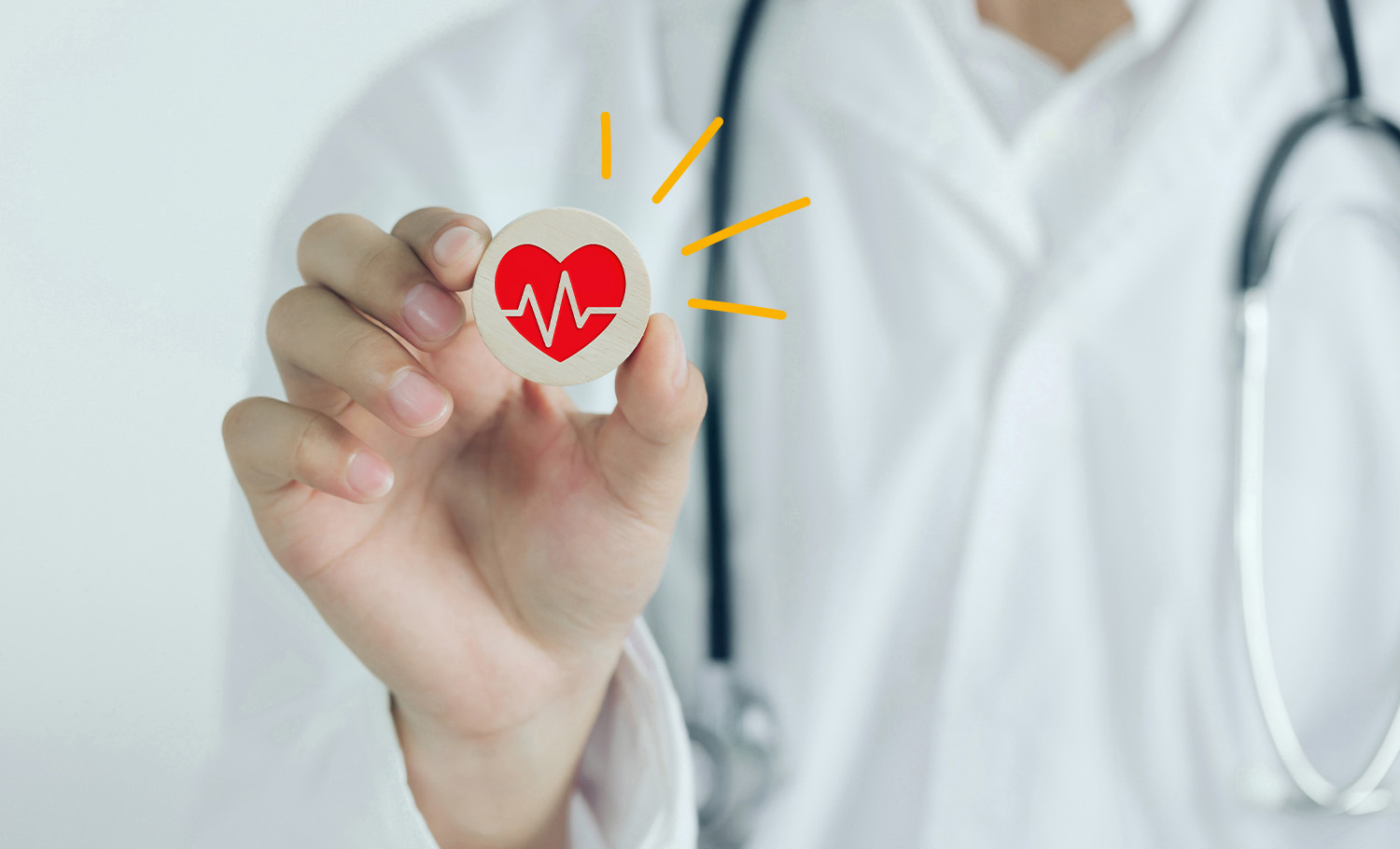How can I reduce my cholesterol level?
14 February 2024 | Comment(s) |
Livia Zimmermann

Imagine a tasty dessert buffet with a profusion of cakes and puddings... "This is going to be great for my cholesterol!” Have you ever heard this kind of exclamation? Of course, it is said ironically and the person concerned should avoid this type of food. But what is cholesterol? Here are some answers.
What is cholesterol?
Cholesterol is an important fat-like substance found in the blood and is necessary for many of the body's functions.
Why does the body need cholesterol?
To produce hormones (cortisol, testosterone and estrogen) and vitamins, and to build cell walls. Cholesterol is also necessary for the formation of bile acids for digestion.
Where does cholesterol come from?
Cholesterol is mainly produced by the liver or absorbed from the diet. It is then carried to the organs by the bloodstream.
Why can cholesterol be dangerous?
Cholesterol is only dangerous to health if the balance between its production and breakdown is disturbed. Normally, the human body regulates its cholesterol reserves very precisely and can cover its own needs. Our body produces around three quarters of total cholesterol, the rest being absorbed through our diet.
However, if the body absorbs a lot of cholesterol through the diet, the natural production of cholesterol decreases. If this regulatory mechanism is no longer working, blood cholesterol levels rise.
What happens when you have too much cholesterol?
When you have too much cholesterol, you have high cholesterol levels, or hypercholesterolemia. This condition leads to calcification of the arteries. This can in turn lead to thrombosis, resulting in cardiovascular disease such as a heart attack or a stroke.
Not all cholesterols are identical
What is the difference between HDL and LDL lipoproteins? Doctors distinguish between two types of lipoproteins that transport cholesterol. They are differentiated mainly by their lipid content:
- HDL - High-density lipoproteins (or "good cholesterol")
- LDL - Low-density lipoproteins (or "bad cholesterol")
LDL carries cholesterol from the liver to other organs, while HDL carries excess cholesterol back to the liver, where it is broken down. When LDL cholesterol rises, so does total cholesterol.
How are cholesterol levels measured?
The doctor takes a blood sample. In the laboratory, total cholesterol and HDL and LDL values can be measured. Cholesterol values are expressed in mg/dl (milligrams per decilitre) or mmol/l (millimoles per litre).
In some cases, the relative ratio of HDL cholesterol to LDL cholesterol is also indicated on the laboratory record, known as the LDL/HDL quotient. If the values are above 3.5, there is a risk.
A healthy lifestyle: reducing cholesterol naturally

The good news is that everyone can help reduce their LDL cholesterol levels. People who have already suffered a heart attack or stroke should take particular care to adopt an active and balanced lifestyle.
This means eating a balanced, low-cholesterol diet, getting enough exercise and playing sport regularly, reducing excess weight and maintaining a healthy body weight, as well as giving up nicotine.
Diet in the case of hypercholesterolemia
Diet plays a very important role in reducing LDL cholesterol.
You should give up:
- butter and high-fat dairy products
- “empty" carbohydrates, such as sugar and white flour products
- fast food or prepared dishes of any kind
- shellfish (crabs, scampi, lobster)
- sausages with a fat content of more than 20%, offal
- alcoholic beverages
and choose the following foods instead:
- wholegrain cereals (300-400g a day)
- fruit (250g a day) and vegetables (400g a day)
- skinless poultry (max. 300-600 g per week)
- fish/seafood (1-2 times a week, up to 220 g)
- For dairy products and meat, opt for low-fat variants.

Should I give up eggs?
No, but don't forget that eggs contain a lot of cholesterol. If you eat one boiled egg at the weekend, there should be no negative effects. Two to three eggs a week are generally harmless. However, certain types of pasta, noodles and other foods also contain eggs. Pay particular attention to products containing egg yolk.






